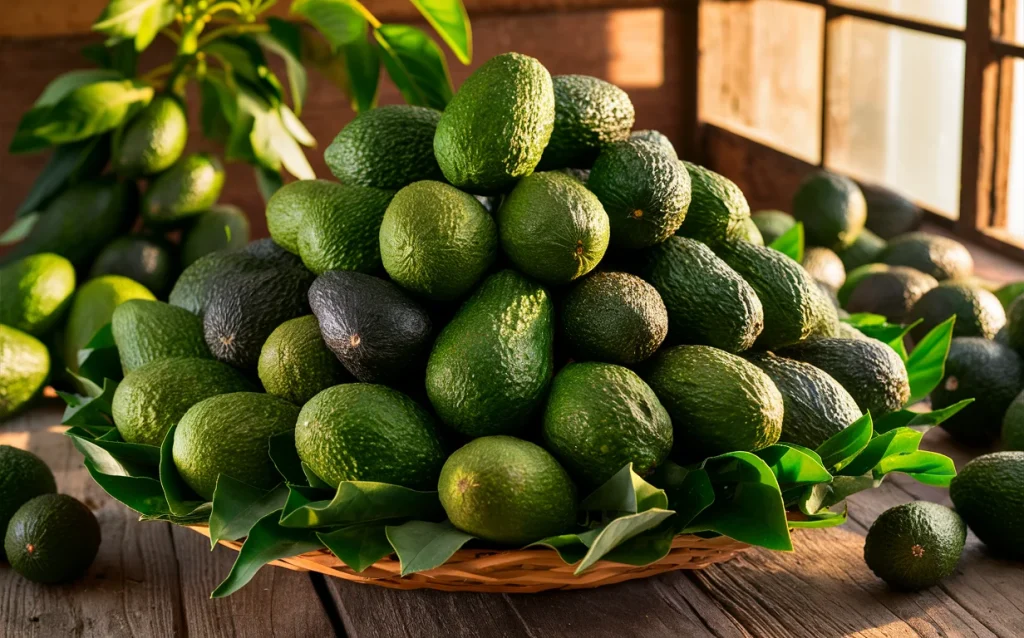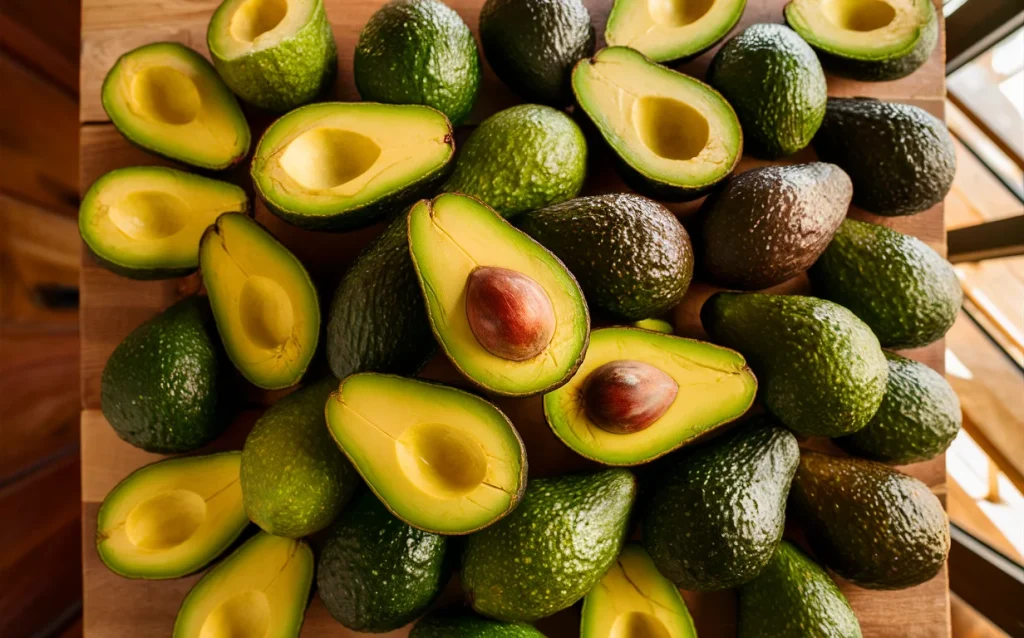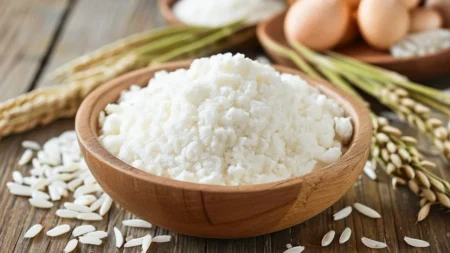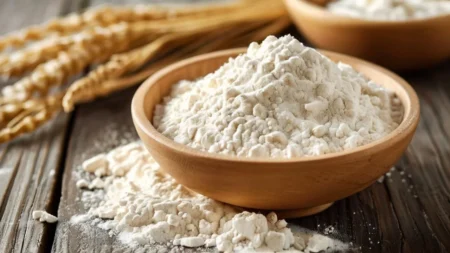Avocados are an incredibly versatile fruit (yes, fruit!) that have gained immense popularity in recent years for their delicious flavor, creamy texture, and impressive nutritional profile. This article will explore the captivating world of avocados, delving into their diverse culinary applications, remarkable health benefits, and the fascinating history of their cultivation and global reach.

Key Takeaways
- Avocados are a nutrient-dense fruit with a unique creamy texture and flavor.
- Avocado recipes range from savory dishes like guacamole to sweet treats and smoothies.
- Avocados are packed with healthy fats, vitamins, and antioxidants that offer numerous health benefits.
- The cultivation and global distribution of avocados have a rich cultural and historical background.
- Proper avocado selection and storage techniques are crucial for maximizing freshness and flavor.
The Avocado: Nature’s Nutritional Powerhouse
Avocados are renowned for their exceptional nutritional profile, earning them the title of “nature’s nutritional powerhouse.” This creamy avocado fruit is rich in monounsaturated fats, which are crucial for heart health, brain function, and overall well-being. In fact, avocados contain more heart-healthy monounsaturated fats than any other fruit.
Packed with Healthy Fats and Vitamins
Avocados are a remarkable source of avocado nutrition and avocado health benefits. Beyond their impressive fatty acid profile, they are also brimming with an array of essential vitamins and minerals, including vitamins C, E, K, and B6, as well as potassium, magnesium, and fiber. This nutritional powerhouse makes avocados an excellent addition to a balanced, nutrient-dense diet.
Versatility in the Kitchen
The versatility of avocado culinary uses is truly astounding. From the classic guacamole to innovative avocado-based dishes, this fruit can be incorporated into a wide variety of recipes, from appetizers and main courses to desserts and smoothies. The creamy texture and subtle flavor of avocados make them a versatile ingredient that can enhance the taste and nutritional profile of countless culinary creations.
Avocados: A Culinary Delight
Avocados have long been celebrated for their exceptional culinary versatility, with the iconic guacamole being perhaps the most well-known avocado-based dish. However, the culinary applications of this remarkable fruit extend far beyond the classic guacamole. From the creamy indulgence of avocado toast to the refreshing delight of avocado smoothies, the opportunities to incorporate avocados into your diet are truly endless.
Guacamole and Beyond
While guacamole remains a beloved staple, the versatility of avocados allows them to shine in a wide range of culinary creations. Avocados can be seamlessly integrated into salads, used as a base for desserts, or blended into nourishing avocado smoothies. The rich, creamy texture of avocados lends itself beautifully to a variety of dishes, making them a versatile ingredient in both savory and sweet preparations.
Incorporating Avocados into Your Diet
Incorporating avocados into your daily diet is a simple way to boost your intake of essential nutrients and healthy fats. Whether you enjoy them sliced on avocado toast, mashed into a vibrant guacamole, or blended into a refreshing avocado smoothie, this nutritional powerhouse can be enjoyed in a multitude of delicious ways. Experiment with different avocado recipes and discover the endless possibilities this versatile fruit has to offer.
Avocado Cultivation: From Farm to Table
The journey of avocados from their origins to the global market is a fascinating tale of agricultural innovation and cultural significance. Native to the ancient Mesoamerican civilizations of Mexico, Guatemala, and Central America, avocados have been cultivated and enjoyed for thousands of years. Today, avocado growing and cultivation have expanded to various regions around the world, transforming this once-regional delicacy into a global phenomenon.
The history of avocado production can be traced back to the Aztec Empire, where the fruit was highly revered and considered a symbol of fertility. As the Spanish conquistadors arrived in the 16th century, they were captivated by the unique flavor and texture of the avocado, introducing it to Europe and further expanding its global reach.
Today, the avocado industry has grown exponentially, with major producers such as Mexico, Chile, Peru, and California leading the way in avocado growing and cultivation. The rise in popularity of avocados can be attributed to their versatility in the kitchen, their exceptional nutritional profile, and the increasing consumer demand for healthy, plant-based foods.
| Top Avocado Producing Countries | Annual Production (in metric tons) |
|---|---|
| Mexico | 2,200,000 |
| Dominican Republic | 500,000 |
| Peru | 450,000 |
| California, USA | 350,000 |
| Colombia | 300,000 |
As the global appetite for avocados continues to grow, the avocado industry has faced challenges in meeting the increasing demand. Sustainable avocado cultivation practices, water management, and responsible avocado growing methods have become critical priorities for producers around the world, ensuring that this beloved fruit remains available for generations to come.
Health Benefits of Avocados: Fueling Your Body
Avocados are not only a delicious and versatile fruit, but they also offer an impressive array of health benefits that make them a true nutritional powerhouse. One of the most notable advantages of incorporating avocados into your diet is their positive impact on heart health.
Heart Health and Weight Management
Avocados are rich in monounsaturated fats, which have been shown to help lower cholesterol levels and reduce the risk of heart disease. These healthy fats also play a crucial role in maintaining a balanced weight, as they promote feelings of fullness and satisfaction, making it easier to manage overall calorie intake.
Antioxidant Properties
In addition to their heart-healthy benefits, avocados are also renowned for their impressive antioxidant properties. They contain a variety of potent antioxidants, including vitamins C and E, as well as carotenoids like lutein and zeaxanthin. These powerful compounds help neutralize harmful free radicals, reducing inflammation and supporting overall cellular health.
| Nutrient | Amount in Avocado | % Daily Value |
|---|---|---|
| Monounsaturated Fats | 15 grams | 23% |
| Vitamin C | 10 milligrams | 17% |
| Vitamin E | 4 milligrams | 27% |
| Lutein and Zeaxanthin | 271 micrograms | N/A |
Selecting and Storing Avocados for Maximum Freshness
Selecting the perfect avocado and storing it properly are crucial steps in ensuring you enjoy the full flavor, texture, and nutritional benefits of this remarkable fruit. Mastering the art of how to select avocados and avocado storage techniques can make all the difference in the world.
Ripeness Indicators
Determining the right level of avocado ripeness is the key to selecting the ideal avocado. Gently squeeze the avocado in the palm of your hand – it should yield slightly to the touch, but not be overly soft or mushy. Additionally, look for an avocado with a rich, dark green or almost black skin that has a slight give when pressed. Avoid avocados that are hard, blemished, or have a bright green color, as these are likely underripe.
Proper Storage Techniques
Once you’ve selected the perfect avocados, proper storage is essential to maintain their avocado freshness and avocado shelf life. To store unripe avocados, keep them at room temperature out of direct sunlight. Once the avocados have reached the desired level of ripeness, transfer them to the refrigerator to slow down the ripening process and extend their avocado freshness. Ripe avocados can typically be stored in the fridge for up to three to five days.
| Avocado Ripeness Stage | Storage Recommendation | Shelf Life |
|---|---|---|
| Unripe | Room temperature, out of direct sunlight | 4-5 days |
| Ripe | Refrigerator | 3-5 days |
| Overripe | Discard | N/A |
By understanding the visual cues and physical characteristics of avocado ripeness, as well as the proper storage techniques, you can ensure that your avocados remain fresh, flavorful, and ready to elevate your culinary creations.
Conclusion
In the captivating world of avocados, we have uncovered a remarkable fruit that offers a harmonious blend of delectable flavor, exceptional nutritional value, and unparalleled culinary versatility. From their humble origins in ancient Mesoamerica to their current global popularity, avocados have cemented their status as a beloved ingredient in cuisines around the world.
The versatility of avocados knows no bounds, as they seamlessly transition from the classic guacamole to innovative culinary creations, enhancing the taste and texture of countless dishes. Their health benefits, such as their heart-healthy monounsaturated fats and antioxidant properties, make them an indispensable addition to a balanced diet, fueling our bodies with the necessary nutrients for optimal well-being.
As we bid farewell to this captivating exploration of avocados, it is clear that this remarkable fruit has captured the hearts and palates of people worldwide. Whether you’re a seasoned avocado enthusiast or newcomer to this culinary delight, the journey of discovery has only just begun. Embrace the avocado‘s versatility, savor its exceptional flavors, and reap the rewards of its impressive nutritional profile. The avocado’s legacy continues to grow, and its place in our culinary and health-conscious world is undeniable.
FAQ
What are the health benefits of avocados?
Avocados are a nutritional powerhouse, rich in heart-healthy monounsaturated fats, vitamins, minerals, and antioxidants. They offer benefits for heart health, weight management, and overall well-being.
How can I use avocados in the kitchen?
Avocados are incredibly versatile and can be used in a wide range of dishes, from guacamole and avocado toast to smoothies, salads, and even desserts.
How do I select and store avocados for maximum freshness?
Choosing avocados at the right level of ripeness and storing them properly are key to ensuring their optimal flavor and texture. Look for avocados that yield slightly to gentle pressure and store them at room temperature or in the refrigerator, depending on their ripeness.
Where do avocados come from, and how are they cultivated?
Avocados originated in ancient Mesoamerica and have been cultivated for thousands of years. Today, they are grown in various regions around the world, with major producers including Mexico, California, and Peru.
Are avocados considered a fruit or a vegetable?
Avocados are technically classified as a fruit, despite their savory flavor and creamy texture, which may lead some to mistakenly consider them a vegetable.
Can avocados be used in desserts?
Yes, avocados can be used in sweet desserts, such as avocado chocolate mousse, avocado ice cream, or avocado-based pies and tarts, taking advantage of their creamy texture and mild flavor.
How do the nutritional values of avocados compare to other fruits and vegetables?
Avocados are particularly high in healthy monounsaturated fats, fiber, vitamins, and minerals, making them a nutritional powerhouse compared to many other fruits and vegetables.
Can avocados be frozen for later use?
Yes, avocados can be frozen to extend their shelf life, though the texture may change slightly upon thawing. Proper preparation and storage techniques are important to maintain the avocado’s quality.
What are some creative ways to incorporate avocados into my diet?
Beyond classic guacamole and avocado toast, avocados can be used in smoothies, salads, soups, dips, and even baked goods and desserts, offering endless opportunities for culinary experimentation.
Are there any potential downsides or allergies associated with consuming avocados?
While avocados are generally safe for most people, some individuals may have allergies or sensitivities to certain compounds in avocados. It’s always best to consult with a healthcare professional if you have any concerns.











